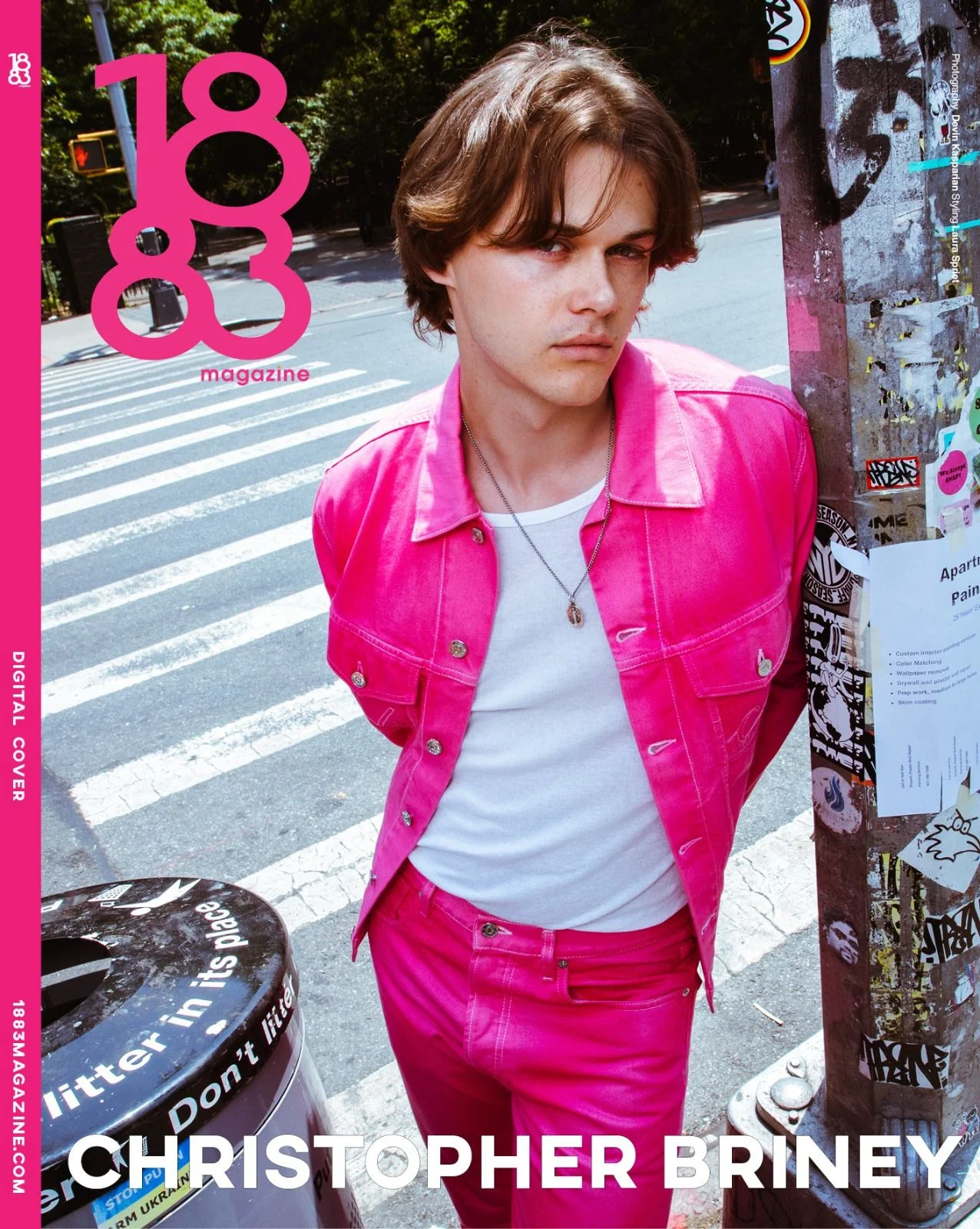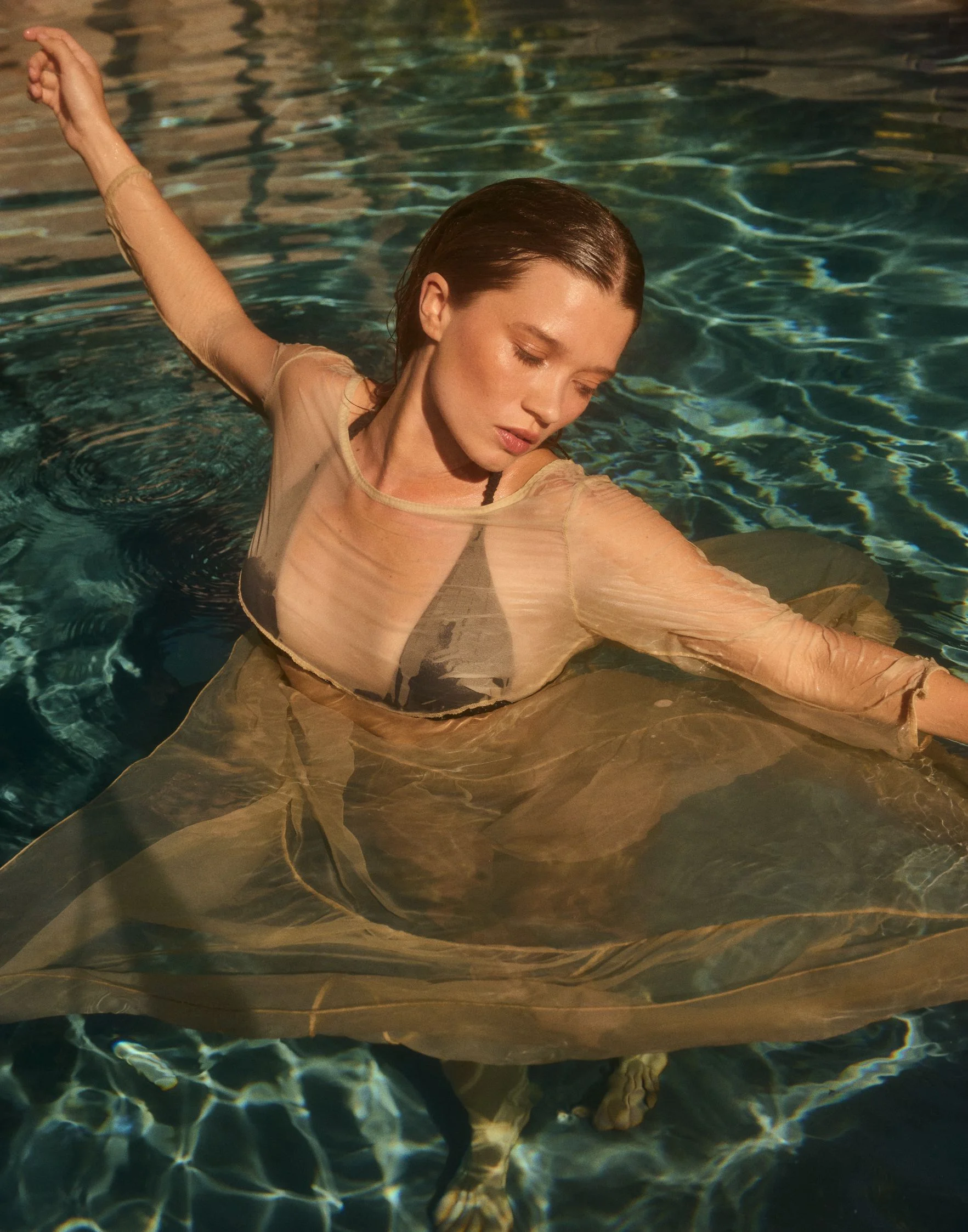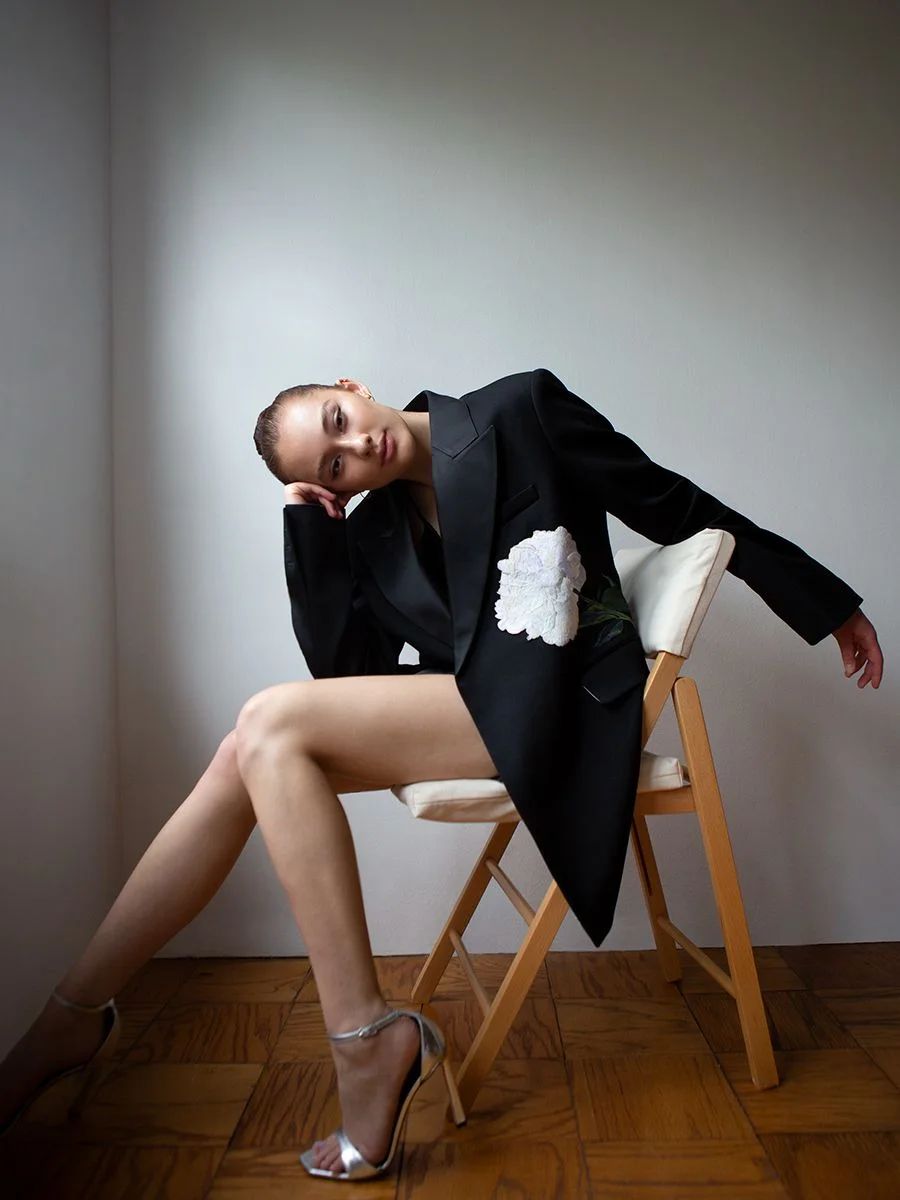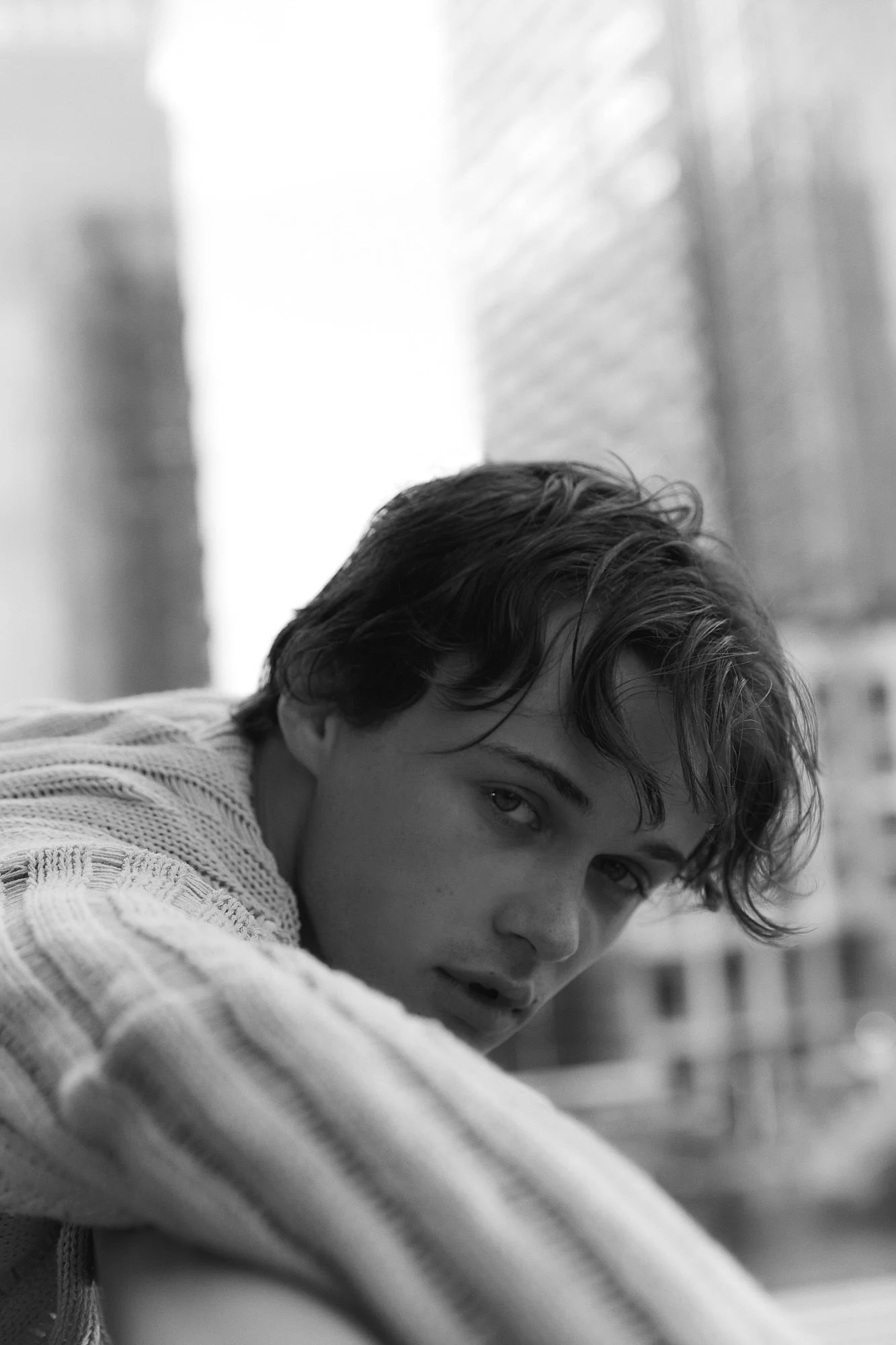
Christopher Briney
At just 24 years old, Christopher Briney has starred in a hit rom-com series and had his debut film, where he played the lead role, premiered at the Toronto International Film Festival (TIFF), and he’s only just getting started. Briney was born and raised in Connecticut where he first discovered his passion for acting upon taking an acting class. He attended Pace University in New York and studied Acting for Film, TV, Voiceover and Commercial.
Upon graduating in 2020 at the height of the pandemic, Briney began auditioning for roles, hoping something would come through. Within that year, he landed the role of James in Dalíland, a film that centered around Salvador Dalí in the 1970s to the 1980s. James joins Dalí’s team as an assistant and gets thrown into the crazy, scandalous, and dramatic happenings in the renowned artist’s life. It was while filming for this film in Liverpool, UK, that Briney got the call that he got the role of Conrad Fisher in The Summer I Turned Pretty, an Amazon Prime series based off of Jenny Han’s bestselling trilogy, The Summer I Turned Pretty.
Briney, along with the rest of the cast, became household names overnight after the first season of the show premiered, and it was quickly renewed for a second season, which began filming earlier this summer in Wilmington, North Carolina. In between, Briney took a quick trip to Toronto to join the cast of Dalíland for the premiere at TIFF. 1883 Magazine chats with the actor to discuss his two projects, his ambitions, and what’s next.
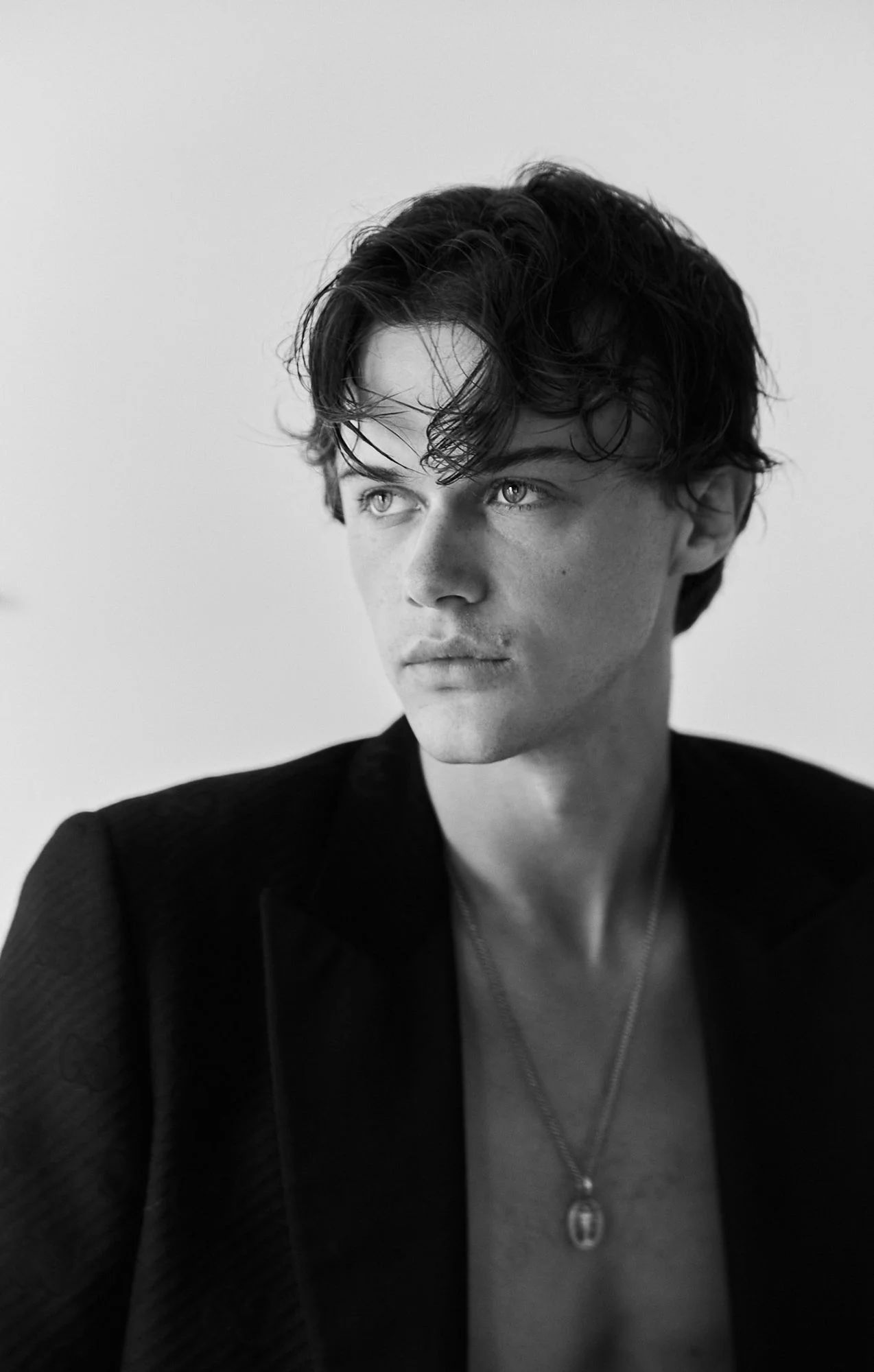


It’s a massive deal to have your first film premiere at TIFF. Congratulations! How are you feeling?
TIFF is just the thing of my dreams in so many ways. I’ve dreamt for years and years about going to a festival and it being an independent film and me being a part of it, you know? So it was such a dream come true in so many ways, and I hope people get to see this movie soon.
What was your knowledge of Salvador Dalí prior to taking on this role? Were you a fan of his work?
I was a general fan of his already. His work is in some textbooks in school and I took an aesthetics class in college and we talked a little bit about him as he related to philosophers and their ideas of beauty. But I really had no clue of the density of his work because he’s got thousands and thousands of pieces of different varieties and styles. It’s mind numbing how much work he has, so I had no idea about that and about his lifestyle. I had a lot to learn going into this, to be honest.
Would you say the film embellished parts of Dalí’s life and experiences, or did they try to follow as closely as possible?
John Walsh, the screenwriter, and Mary Harron, the director, had been working on it for years. They talked to so many different people who were connected to Dalí around that time of his life. They read every book possible, whether it was a credible source or not, and they took all the facts that they learned and turned it into a movie. I don’t know if Dalí said exactly all those things, but there are some things that he’s credited with saying and they wanted to be accurate to those later years in his life. I was one of the only characters that was not based on a real person.
Really?
Yeah, James is based on an archetype of a person that was present around Dalí. He was this young, male kid, just helping out, but no one by the same name. There’s this picture I saw in this book of the character, just walking next to Dalí. He was wearing the same stuff I wore in the film, so it was cool to see.


What attracted you to the character of James?
I mean, he’s a really curious kid. I think that in that way I’m similar to him. He’s driven and curious and naive because he just gets tossed around the entire movie. It’s not that he’s not smart, but he gets wrapped up in things bigger than him. He has no concept of what they’re like, which was sort of just like me doing the movie. You know, I was like, what is going on? I’ve never done a film before, so it was parallel with what I was going through and it was exciting to be able to play that.
The film is set in the 1970s and your wardrobe definitely reflected that time period. You also got to drive a really neat car. What was it like working on a period piece, as opposed to The Summer I Turned Pretty, which is very in tune with the Gen Z demographic and lifestyle?
It was so cool to work within a different world from what I know. A lot of my favorite movies, or movies I love, take place in that era. They’re period pieces and capture a moment in culture. I got to wear period accurate clothing like corduroy flares and this YSL jacket. Back then, it was just Saint Laurent. The set and prop teams were all so good. You’d walk into set and it would really feel like you’re transported back to that time, if you can get past the camera in your face. It’s just so extensively thought out and beautiful and everything is reflective of that time, like the car, which was brought from France. I’m very grateful to have done it and it is different from The Summer I Turned Pretty, as you said, because on that set, we’re wearing J. Crew jeans and driving a 2019 model of a car as opposed to this old Peugeot. It’s just as cool. I got to learn a lot about things I didn’t know.
Given the choice between the two styles, which would you choose?
I’m wearing a hoodie right now that’s more for comfort than anything. I mean, yes, absolutely. If I could wear those corduroy flares every day for the rest of my life, I probably would. I wasn’t allowed to keep them. In general, the way I dress leans into some classic Americana. Maybe not quite the ‘70s necessarily, but definitely some of it.
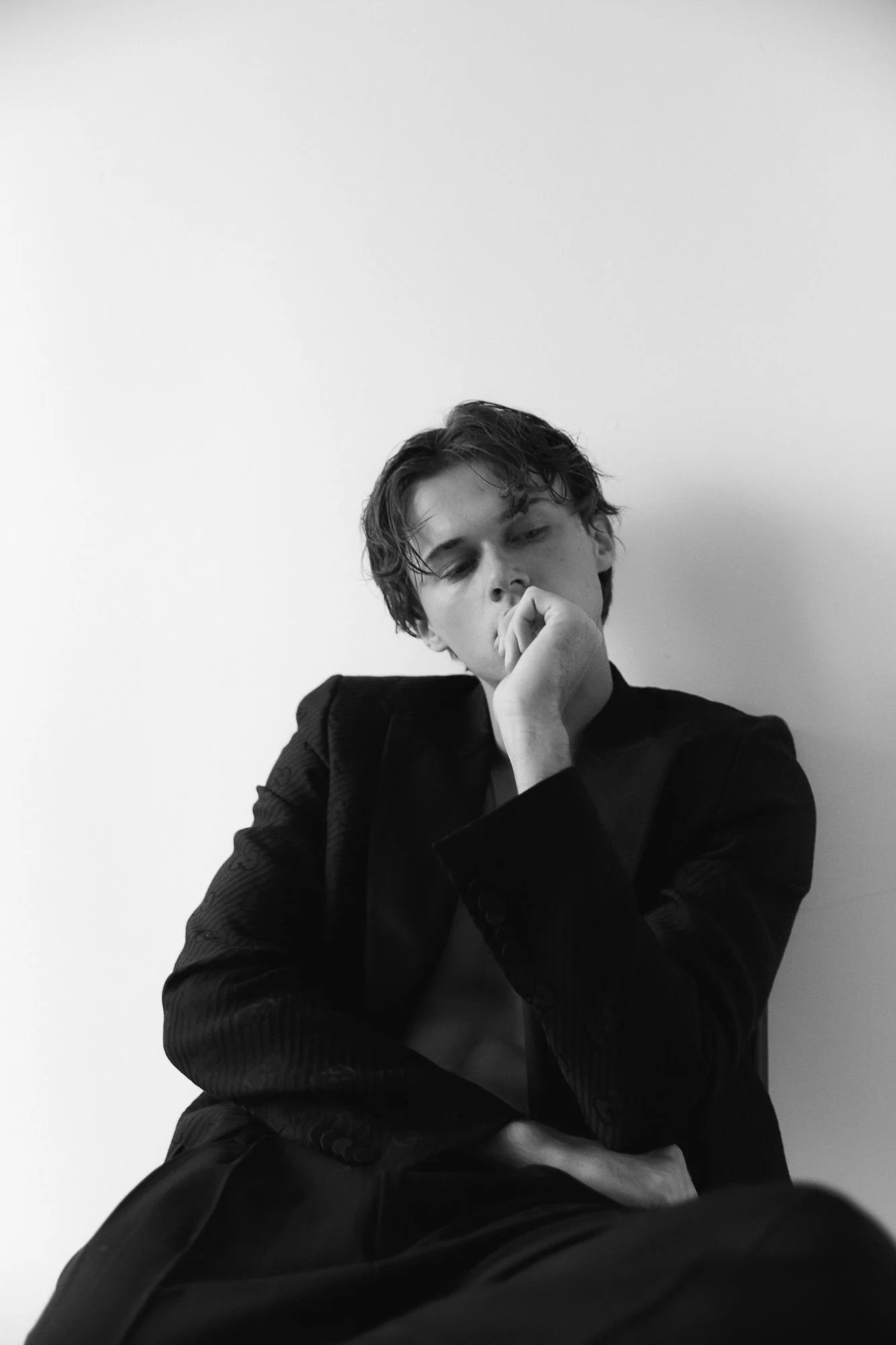

James seems to always be up for anything. He’s exposed to this world and feels like it’s another planet, but he fits in. Would you say you’re also very open to trying new things, especially taking on roles that take you out of your comfort zone?
I definitely think it’s an actor’s dream to do something really different from themselves. The two projects that I have worked on are similar to me in a lot of ways, but the idea of doing something completely wild and unhinged and different is so exciting to think about. We’re filming down here for The Summer I Turned Pretty, so who knows what my next project will be, but it’s exciting and scary to do new things. I’m always game for stuff like that.
In your opinion, how do you think James grew as a person and a professional from the beginning of the film to the end?
He gains this level of perspective that all people gain as they get older and live life, but he learned it from Salvador Dalí and the people that were around him. I think he also just gained this appreciation by the end of the film, and it’s up to interpretation. Anyone can disagree with me, but I think he just gained this appreciation for the life that he had the opportunity to live when he did. It doesn’t matter whether Dalí remembered him or not. He was there. He lived it and he had a fun time, made some mistakes, got caught up in over his head and moved on from it.
What drew Dalí to James was his work of putting together all of Dalí’s different signatures as James was inspired by the way Dalí, in a way, was reinventing himself with each signature. At the end of the film, James goes back to Dalí when he’s sick, and Dalí gets emotional. In a way, do you think he’s looking at those signatures and thinking about the life he lived and all the different versions of himself he had?
So much of the movie’s about Dalí clinging on to his youth and holding tight to life and and love and sex and the world around him and his work, and just denying the fact that he’s aging. Then It flashes forward and he’s at such a different point in his life. He’s facing death. It’s what you said. I really like the idea that it’s sort of up to interpretation, you know, but I would argue that it’s about him looking back on his life and him crying for his death almost.
As an actor, do you feel like with each role and character that you take on, you are also reinventing yourself to adapt to who these characters are and taking away a little piece of them with you?
I definitely think I’m learning from the characters I play. I think that I try my best to bring pieces of me into them and into the world and who’s to say whether that’s successful or not, but that’s something I try to do, but I can absolutely say that I learn from them, or at least from the experiences. It’s the empathetic quality of acting. You need to justify your character’s actions, and if that doesn’t come easily to you, then you learn why it comes easily to them.
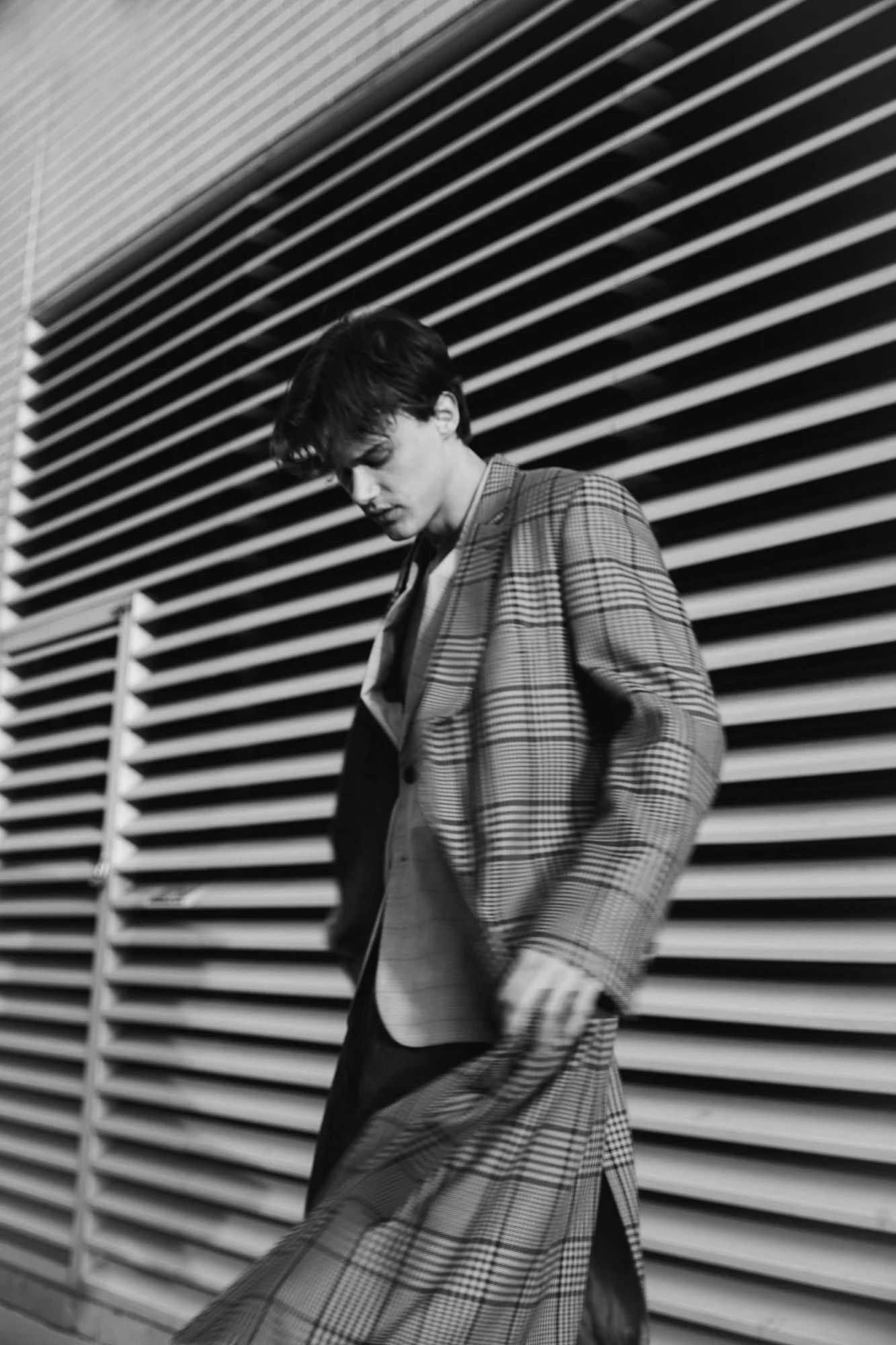
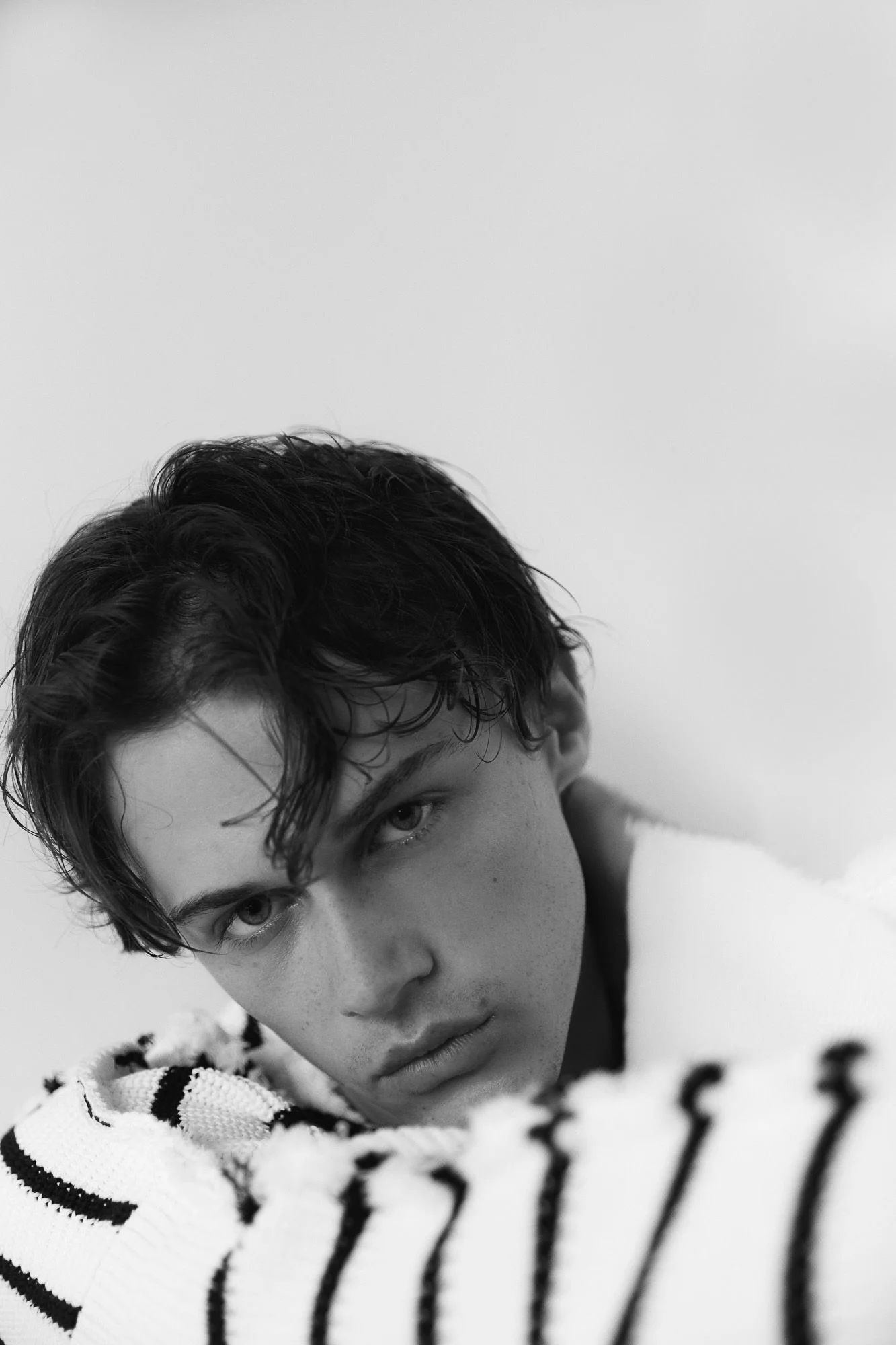
Similar to James, who came from a small town in Idaho to New York, you also moved from Connecticut to New York for college. Once you discovered your passion for acting and film, you knew what you wanted to do, but why New York? Why not LA?
When I was a kid, for some reason, I just always told my family I wanted to go to college in LA, and I meant it for a while. I applied to some colleges out in LA, but honestly, a big factor was I was rejected from almost every college I applied to. [laughs] And then I got into Pace University. It happens. I think I just had a lot more to learn than I knew. At the time, coming out of high school, I sort of thought I was the shit and then I was like, I’m really not the shit. College humbled me and getting rejected from 10 out of 12 schools humbled me. I’m really grateful for how things worked out. I met some of my dearest, dearest friends at college, I learned invaluable lessons. I’m working right now, which is something I don’t take lightly, because I know how hard it is. I have friends a lot more talented than me that are not acting. They’re not working right now. But New York sort of came to me, I guess, in that way, and I just fell in love with New York. I love the energy. It makes me feel creative. It makes me feel like I’m a part of something. I’ve only been to LA maybe 3-5 times, but I’ve never really felt like I was a part of it. I always felt like I was sort of an outsider. I don’t feel that way in New York.
As someone who has lived in New York her whole life, I can understand that. When I went to LA, I also felt like I wouldn’t really fit in there.
Yeah, it’s just not for me. It definitely is for some people, but it’s just not for me.
In college, you worked on some short films and did some theatre as well. Did you find that having done that, you were well prepared to take on the roles that you’ve had? Or are you more inclined to learn as you do?
I think that there’s some things that just can’t be taught. I would assume that goes for every profession. I can only really speak to acting. I spent four years learning acting technique and how to live with yourself and how to accept failure. And then I was lucky enough to be auditioning for a year after I graduated and then even more lucky to book the things that I have. I walked onto the first day of prep, and then the first day of shooting and I had no idea what I was doing. I mean, I had done the work that I felt like I needed to do and as far as that goes I was happy with being ready to work, but I was like, where do I go? What should I do? Who do I talk to? Am I interfering? Should I stay here? Should I go? There’s just so much that you don’t know until you’re there and it can’t be taught because I think it’s different on every set and it’s different for everyone. It’s a weird thing.
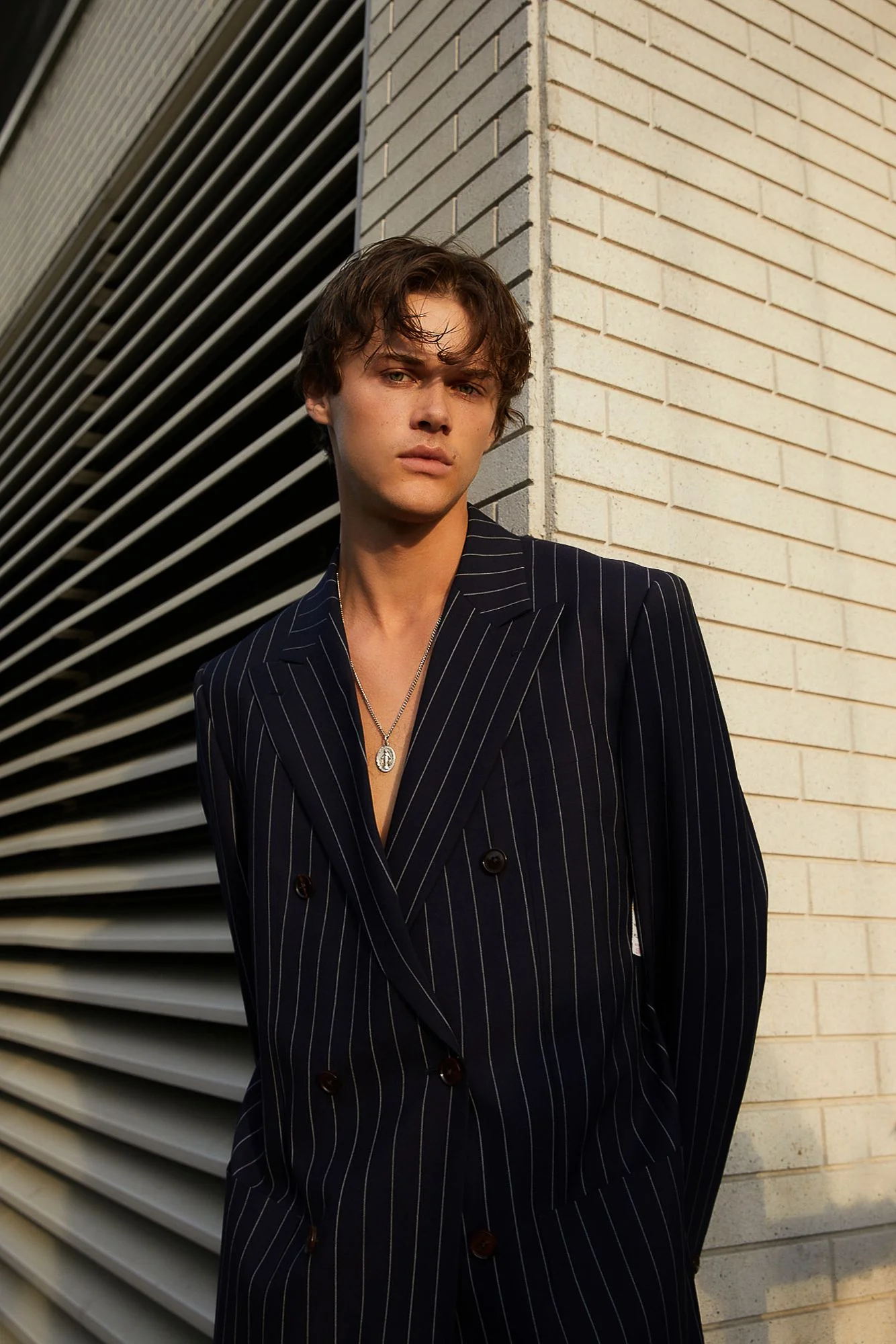
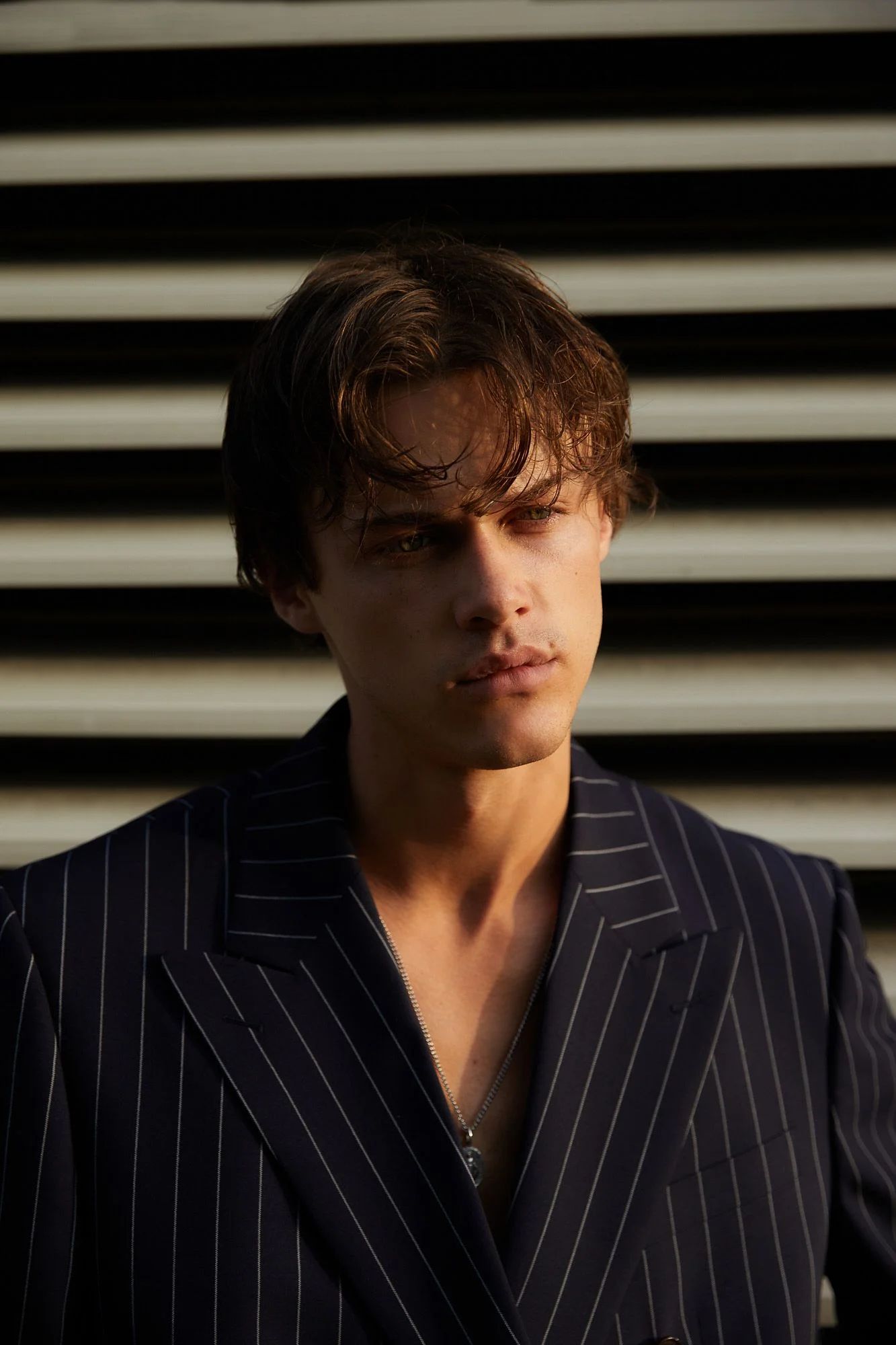
If you weren’t acting, what do you think you’d be doing instead?
I think I’d still be in the world of film. I have a lot of aspirations to direct. It’s a different question if it’s outside of the world of film or acting or any of that, but I really have trouble seeing myself anywhere that isn’t close to this.
Is theatre something you’d like to do more of in the future?
I would love to do some theatre. I started doing theatre in high school, which is very different from professional theatre. It’s a very different sort of endeavour than acting on screen. You get yourself this entire arc that you get to play out overnight whereas filming stops and starts, and you do that over and over.
An actress I once spoke to said that she loves theatre because you get to stay immersed in the character the whole way through. With a movie or a show, you have to stop and start, like you said.
Yeah, absolutely. It’s just the way that those two mediums work. The beautiful thing about theatre is that it’s continuous. You get an intermission in the middle so people can go to the bathroom, but other than that, you have 2-3 hours to tell his story, and that is the entire story. It’s a complete thing. In shooting a TV show, you’re shooting for four months and you do a different chunk of this person’s life every day and sometimes you’re doing the beginning and the end of the show. Sometimes you do little pieces and it’s so weird. Like we were doing an emotional scene last night and it was short because that’s all they could play from this particular camera and you start to ramp up to something and then they yell cut and you’re like, oh okay…
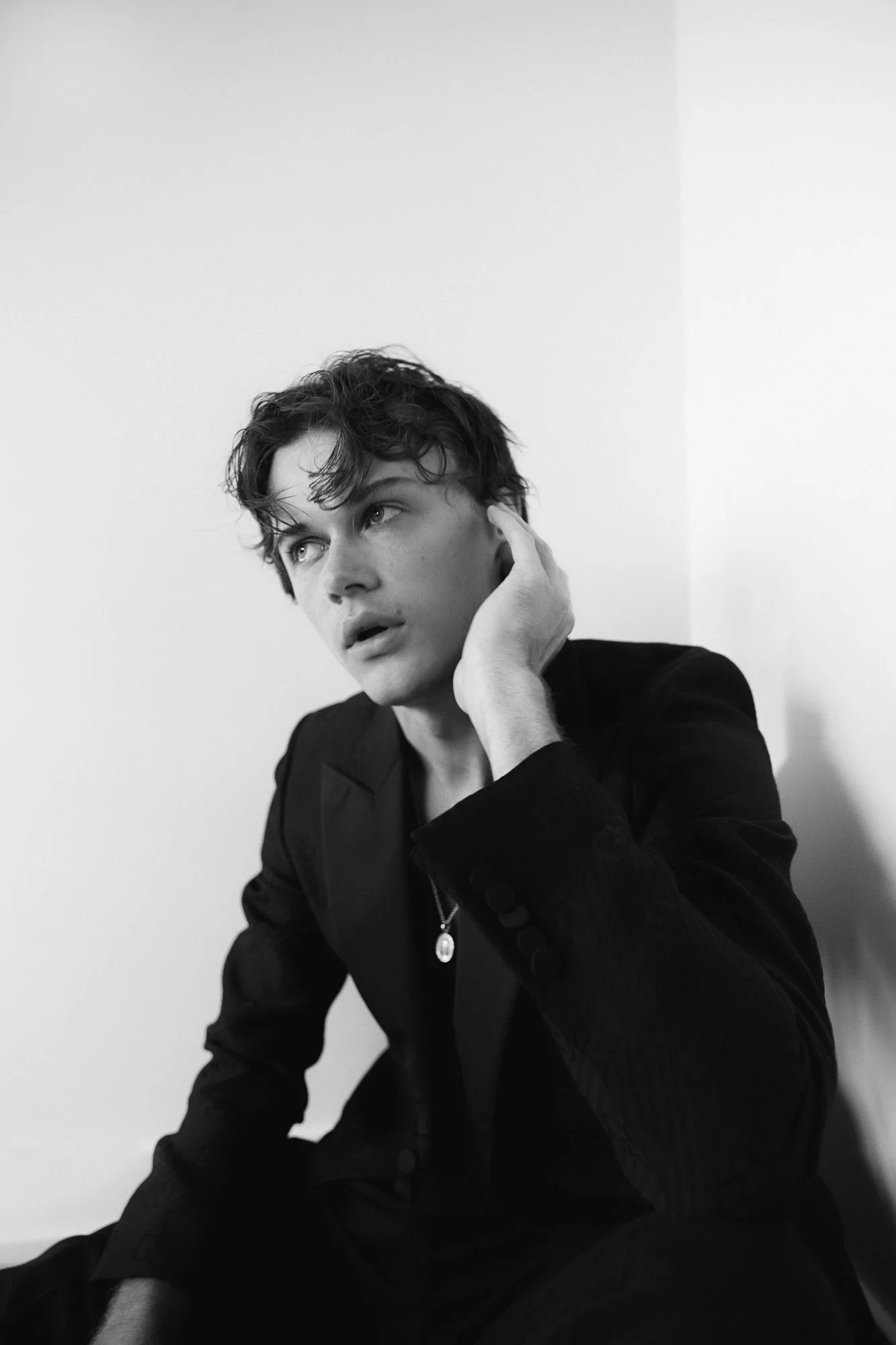
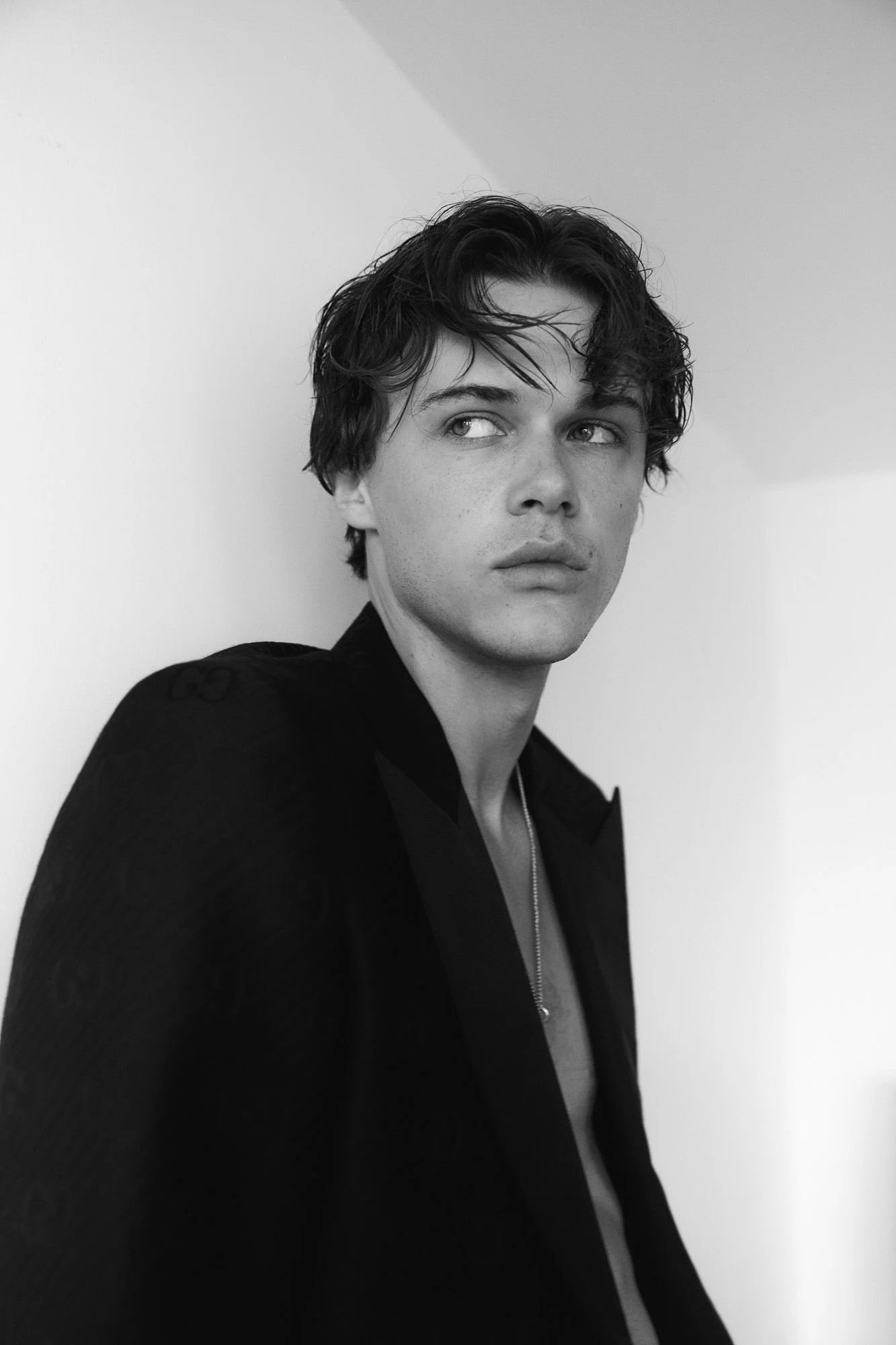
You’ve been busy filming season 2 of The Summer I Turned Pretty. How has that been going?
It’s good. It felt really rough at the beginning for me because I hadn’t really been acting since we finished season one. I was just in New York, hanging out with friends, and auditioning. And so to be back, and then all of a sudden be in the same character that I was last year, but like a different point in his life, it was a weird thing because it was familiar in some ways and really scary in others. But it’s been good. It’s been going. We’re almost done. We have a few weeks left and it’s been a roller coaster of different things. But I am happy with what we have. I hope other people are too. It’s been fun. It’s always good to be here.
What did you do to prepare for the role of Conrad when you began filming for season 1? Did you read the books at all?
That was the first thing I did. I read all three of the books because that helps me a lot, just understanding where a character begins and where they eventually end up even if it is three, six seasons down the line. I also had to try to like Conrad because he was just doing some shit, man. Like he was really playing. I sat with it for a long time and I wrote a lot about it. I think he’s similar to me in a lot of ways and I didn’t want that to be true. Some of the qualities I’m not proud of, but I love him now. I’d fight to the grave defending him. It just took a little while.
What about him did you find frustrating? Because I definitely had a bone to pick with him when I read the books.
It’s always exciting as an actor to play because the more complex a character is, the more fun it is and the more work you get to do. With Conrad, it’s like he’s standing in a ditch and instead of trying to hold someone’s hand to get out, he’s just digging himself deeper and deeper, hoping to get to the other side of the earth. From an outside perspective, you can be like, what are you doing? But it’s natural to try and hide and run. I think it’s a very human experience, and I also think it is something that I’m moving past in my own life, and he has not yet. Or at least in season one he isn’t.
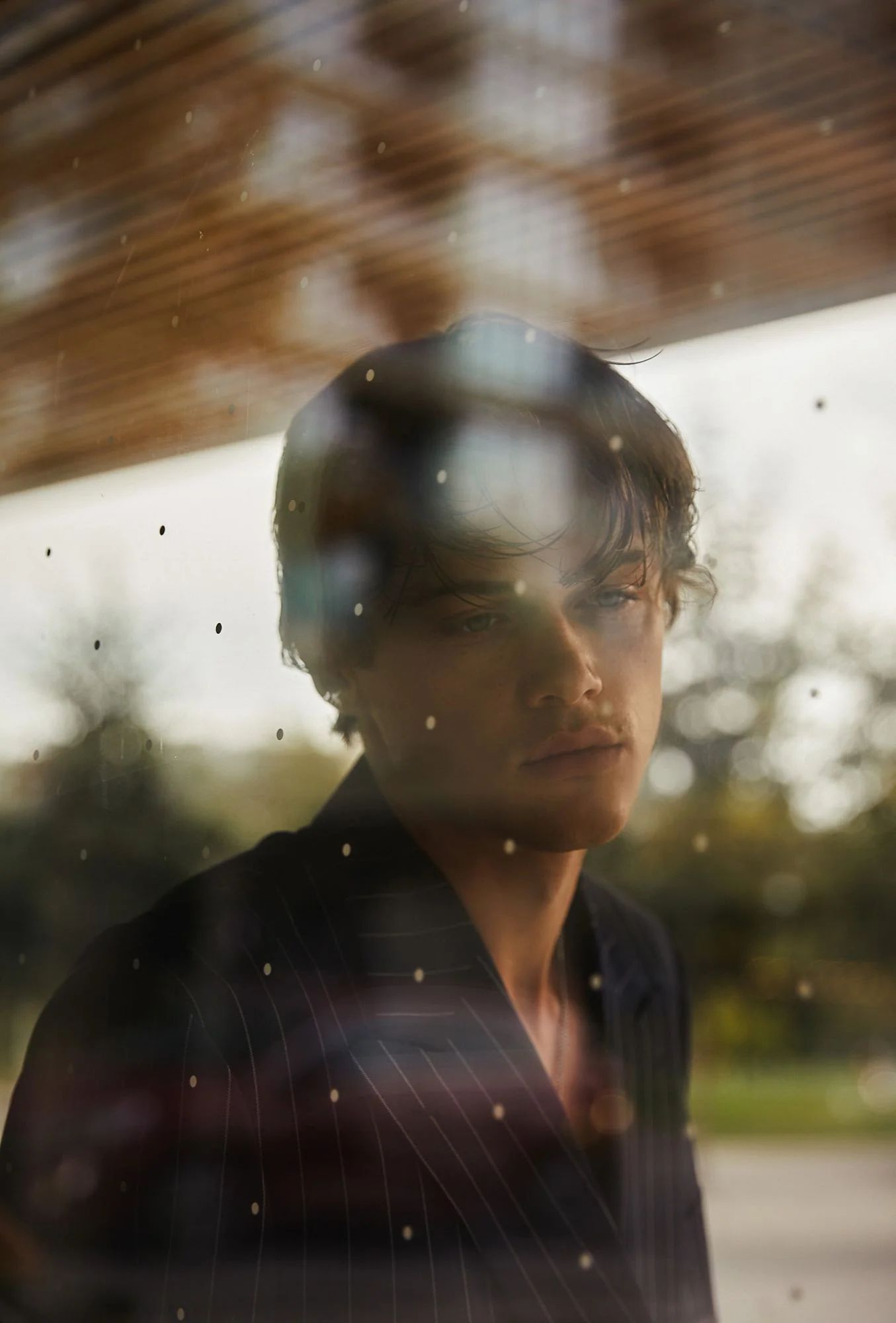

That’s true. He’s definitely dealing with a lot of difficult issues, especially with his family.
I mean, there’s a lot of ups and downs, but I like where it ends up. I think the characters grow a lot, specifically Conrad. I think he travels a long way to get to where he ends up and it’s exciting because right now we’re at a specific point in that journey, like filming and just working slowly towards the end is a fun thing.
How did it feel reuniting with everyone in the cast and crew?
It was so nice. A lot of the cast is based in New York so we hang out a lot when we are there, but it’s so wonderful. I got back to New York last year, and I was like, why am I missing Wilmington? It’s just the people! We have a really fun time here and it’s fun to be working. We get up to some shenanigans. It’s just really a fun experience to be here. I’m very lucky.
What’s next for you?
That’s a good question. I have no idea what I’m doing next. But I hope it’s something different and I don’t mean that in a way to diss on the show or the work I have done, but I always want to be pushing my own limits a little bit, so I hope I get to do something new and exciting and scary.
What’s your ideal role then?
The answer might vary day to day. But it’s always some independent film, like Dalíland where Mary had her say. She went out of her way to make sure she had creative control over all the things that she could in order to tell the story that she wanted to tell and it was really beautiful. That’s why independent film is where, I would argue, the most interesting work because there are fewer cooks in the kitchen. It’s these artists making exactly what they want and nothing less. And who’s to say whether people are gonna like it or agree with the taste of it or whatever, but it’s theirs, and there’s something beautiful about work that is unfiltered and pure.

Interview Naureen Nashid
Photographer Klara Waldberg
Styling Brandon Dillon Laughton
Grooming Nadia Altinbas



